Researchers of the Bible Arabica: The Bible in Arabic among Jews, Christians and Muslims research group
(2013-2018: Deutsche Forschungsgemeinschaft – Deutsch-Israelische Projektkooperation (DFG-DIP), 16th round)
-
Principal Investigators
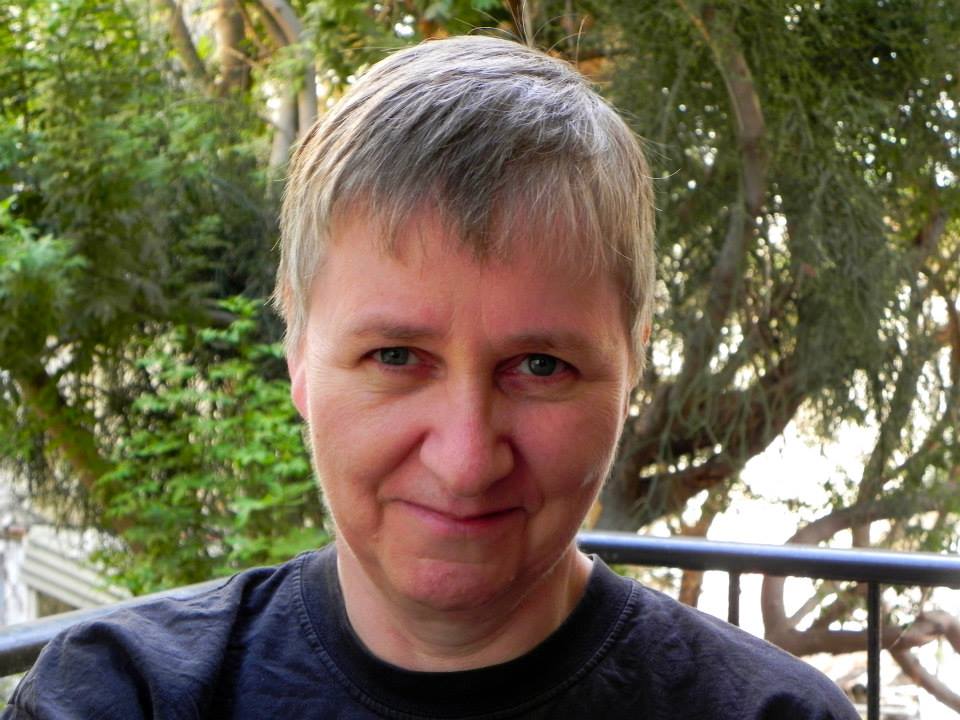
Camilla Adang
Camilla Adang is Professor of Arabic and Islamic Studies at Tel Aviv University, where she teaches classical Islamic thought. She studied Languages and Cultures of the Middle East and Spanish at Catholic University Nijmegen, The Netherlands (now Radboud University Nijmegen), where she also defended her PhD thesis entitled Muslim Writers on Judaism and the Hebrew Bible: From Ibn Rabban to Ibn Hazm, a revised version of which was published in 1996 by Brill. Adang has published widely on social and intellectual (including polemical) encounters between Muslims and Jews in the Middle Ages and the Ottoman period, as well as on the controversial legal scholar and theologian Ibn Ḥazm of Cordoba. She is one of the editors of the Brill series Biblia Arabica: Texts and Studies and serves on the editorial or advisory boards of various other book series and academic journals. Together with Sabine Schmidtke she published the volume Muslim Perceptions and Receptions of the Bible. Texts and Studies (Atlanta: Lockwood Press, 2019).
Most of her publications can be accessed through her web page https://telaviv.academia.edu/CamillaAdang

Andreas Kaplony
Andreas Kaplony is Chair of Arabic and Islamic Studies at the Institute of Near and Middle Eastern Studies, LMU Munich (www.naher-osten.lmu.de). He has published widely on Arab-Islamic history, including Umayyad-Byzantine diplomacy (1996), Muslim, Jewish and Christian pre-crusade conceptions of the Ḥaram of Jerusalem (2002), pre-Mongol Arabic and Persian geography and cartography of Central Asia (2008) and 13th century Arabic business letters from the Red Sea (2014). He is one of the editors of the journal Der Islam and serves as a managing director of the Arabic Papyrology Database and the Archive of Arabic Talk shows.
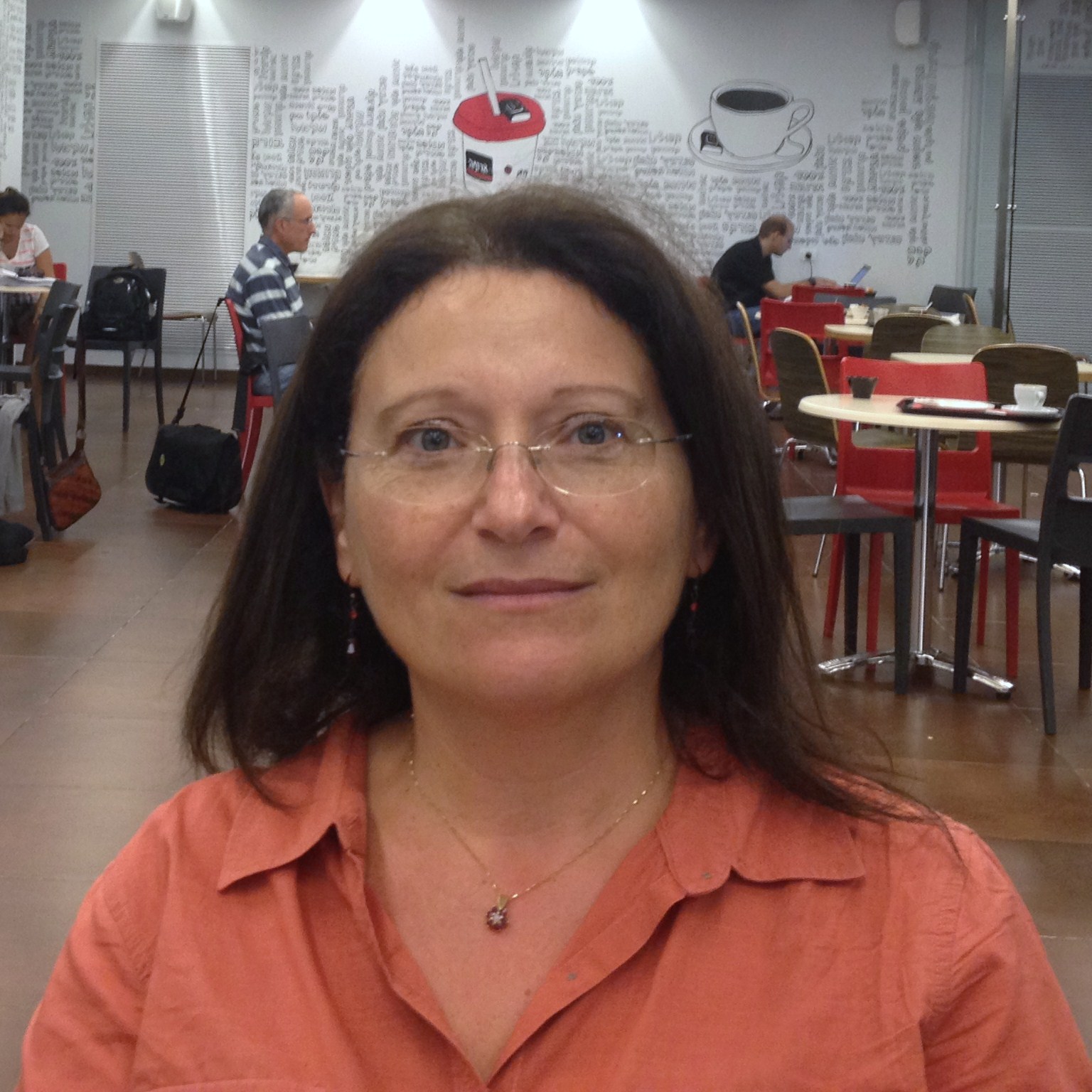
Meira Polliack
Meira Polliack is the Joseph and Ceil Mazer Chair in Jewish Culture in Muslim Lands and Cairo Geniza Studies, and Professor of Bible at Tel Aviv University, where she teaches literary approaches to the Bible, reception history and medieval Bible translation and exegesis. She studied at the Hebrew University of Jerusalem and at Cambridge University, where she also defended her PhD thesis entitled The Karaite Translation Tradition of the Pentateuch into Arabic, a revised version of which was published in 1997 by Brill. She held research fellowships at the Taylor-Schechter Genizah Research Unit, Cambridge and the Hebrew University of Jerusalem, and was Jacob and Hilda Blaustein Visiting Professor of Judaic Studies at Yale University. She also coordinates the ongoing research project on the culture of Jews of the medieval Islamic world at the Center for Diaspora Research, Tel Aviv University. Polliack is one of the editors of the two Brill series, Karaite Texts and Studies and Biblia Arabica: Texts and Studies, and served as area editor in the two Brill publication projects: Encyclopedia of Jews in the Islamic World and Textual History of the Bible. Her research interests also include Judeo-Arabic literature; intellectual and cultural history of the Jews in the medieval Islamic world; historical development of biblical hermeneutics and notions of biblical narrative. Her most recent book, with Eliezer Schlossberg, is Yefet ben ‘Eli’s Commentary on the Book of Zephaniah, Annotated edition, Hebrew Translation and Introduction, Bar-Ilan University Press, 2020.
For her publications, see: https://telaviv.academia.edu/MeiraPolliack
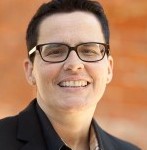
Sabine Schmidtke
Sabine Schmidtke is Professor of Islamic Intellectual History at the Institute for Advanced Study, Princeton. She has a BA (summa cum laude) from the Hebrew University of Jerusalem (1986), an MA from the School of Oriental and African Studies in London (1987), and a D. Phil. from the University of Oxford (1990). She did her Habilitation at the Rheinische Friedrich-Wilhelms-Universität in Bonn (1990). From 1991 to 1999 she was a diplomat at the German Foreign Office. After teaching Islamic Studies in Bonn (1997-1999) and Berlin (1999-2001), she was offered the Chair in Islamic Studies at the University of Vienna (2002), which she declined in favour of a professorship in Berlin. She held fellowships at the Institutes of Advanced Study in Princeton (2008-2009), Jerusalem (2002, 2003; 2005-2006) and Tel Aviv (2011), the Center for Advanced Judaic Studies in Philadelphia (2010) and the Scaliger Institute in Leiden (2007) and is the recipient of a 1,86 million Euro Advanced Grant from the European Research Council (2008-2013), as well as various other grants from the Henkel Foundation (2006-2007, 2008), the Fritz Thyssen Foundation (2005-2007, 2010-2011), the Einstein Foundation Berlin (2011-2015), the DFG together with the NEH (2010-2013), the German Foreign Office (2010) as well as a Koselleck grant (DFG). She has been coordinating a number of international research groups and convened a number of international conferences in Berlin, Jerusalem, Istanbul, Princeton and Madrid. Schmidtke’s main research interests are Islamic Studies; Jewish and Oriental Christian Studies; and the intellectual history of the Islamicate world in general.
Her publications can be accessed at https://albert.ias.edu/handle/20.500.12111/16
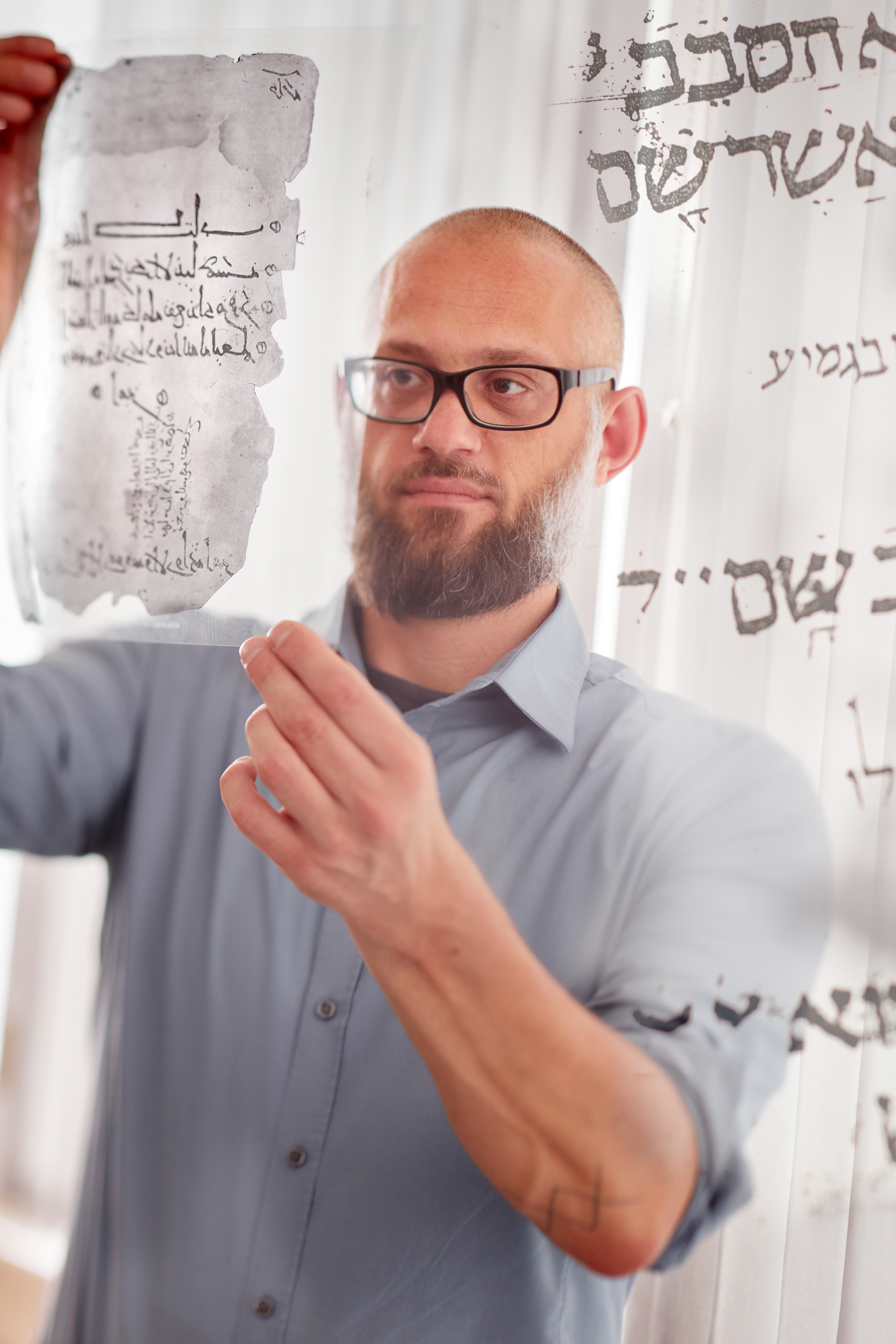
Ronny Vollandt
Ronny Vollandt is Professor of Judaic Studies at the Ludwig-Maximilians- Universität Munich and currently the first chairperson of the German Association of Jewish Studies. His teaching focuses on rabbinic Judaism and on the intellectual history of Jews in the Islamicate world. He researches Arabic versions of the Bible, Judaeo-Arabic literature, and Jewish cultural heritage, and above all manuscripts, in the Near East. He is the author of Arabic Versions of the Pentateuch: A Comparative Study of Jewish, Christian, and Muslim Sources (Brill, 2015, awarded the Boehlig prize in 2017), and co-directed the research project “Biblia Arabica”. Together with Dr Miriam Goldstein (Hebrew University of Jerusalem), he recently received a DFG grant Award for Research Cooperation and High Excellence in Science for the edition, identification, and cataloguing of manuscripts related to Bible exegesis and translation in the Firkovich collections. He is keen on passing on his passion for studying medieval Jewish manuscripts, their codicology, repositories, and acquisition histories to his students (https://www.manuscripthunters.gwi.uni-muenchen.de/).
-
Research Associates

Amir Ashur
Dr Amir Ashur received his PhD from Tel Aviv University in 2006. The topic of his doctoral dissertation, written under the supervision of Professor Mordechai Akiva Friedman of Tel Aviv University, was Engagement and Betrothal Documents from the Cairo Geniza. Ashur’s research focuses on the ‘documentary Geniza’ – letters, legal documents and other documents that represent the daily life of the Geniza world. A former student of Professor Friedman, he continues to work with him on various projects relating to Geniza research, among them the celebrated India Book. In the Biblia Arabica project, Amir Ashur served as an expert for identifying scribes, whenever possible, and examined the use of Biblical quotations in letters and other documentary materials, in order to determine the popularity of Biblical books in different times and places. For more details of his scholarly activities, see his web page: https://telaviv.academia.edu/AmirAshur%D7%90%D7%9E%D7%99%D7%A8%D7%90%D7%A9%D7%95%D7%A8
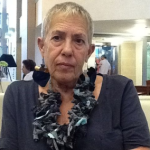
Athalya Brenner-Idan
Professor Athalya Brenner holds a BA in Biblical Studies and English Language and Literature (University of Haifa), an MA in Biblical Studies (Hebrew University), and a PhD in Biblical Studies (Department of Near Eastern Studies, University of Manchester, England). She is Professor Emerita of the Hebrew Bible/Old Testament Chair at the University of Amsterdam and Retired Professor at the Department of Biblical Studies, Tel Aviv University. She has an honorary PhD (2002) from the University of Bonn, Germany. In 2014 she served as Vice President of the Society of Biblical Literature (SBL). She has worked in Israel, Europe, the US and Hong Kong; and has published widely in the fields of Semitic philology, feminist criticism, literary and cultural analysis, and early Judaism and its literatures, mainly as related to the Bible and its reception history across ages, places and religions. For more details of her scholarly activities see her internet site, Athalya-Morah-leTorah.com. Within the Biblia Arabica project she offered major support in enhancing the visibility of the project and its aims with international scholarly organizations, such as the SBL. She also initiated and edited, together with Meira Polliack, Jewish Biblical Exegesis From Islamic Lands, The Medieval Period (Atlanta, SBL Press, 2019). The selected texts in this volume, many of which were written by members of the research group, offer intriguing insights into the Arabic translations and commentaries by Rabbanite and Karaite Jewish exegetes from the 10th to the 12th centuries CE, arranged according to the three divisions of the Torah, the Former and Latter Prophets, and the Writings. Each text is embedded within an essay discussing its exegetical context, reception and contribution, and demonstrating the cross-cultural pollination with Islamic and Christian scriptural traditions.
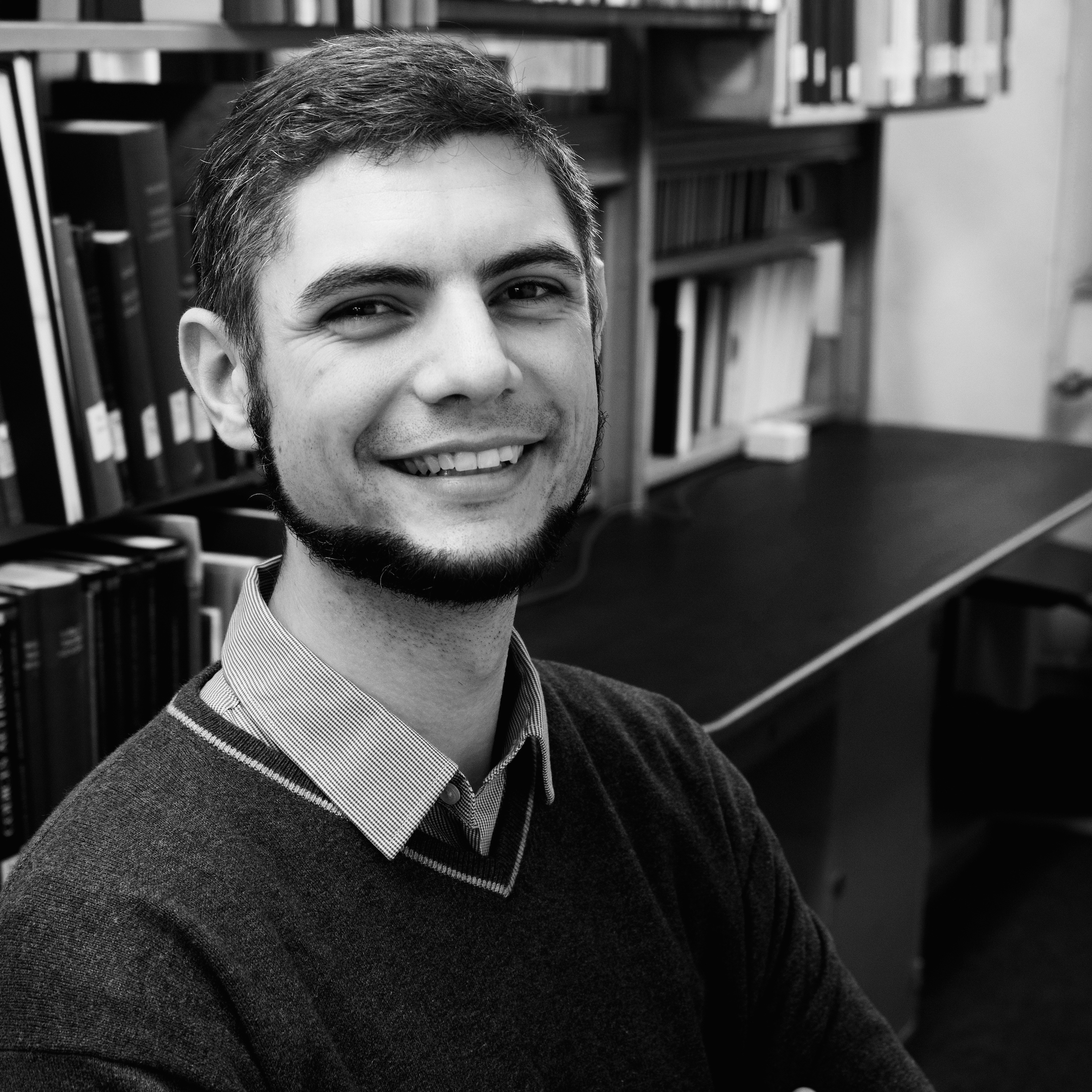
Nathan Gibson
Dr Nathan Gibson, who is attached to the Institute for Near and Middle Eastern Studies at Ludwig-Maximilians University in Munich, holds an MA (2011) and a PhD (2015) in Semitic and Egyptian Languages and Literatures with an emphasis on Arabic and Syriac from the Catholic University of America. His PhD dissertation, supervised by Professor Sidney H. Griffith, explored the situation of Muslim-Christian relations in ninth-century Iraq through the lens of “The Refutation of Christians,” a polemical work by the Arabic prose master Amr ibn Bahr al-Jahiz (c. 776–868/869). A revised version of this thesis, entitled Polemic, Power, and Popular Opinion: Al-Jahiz’s Social Argumentation on the Muslim-Christian Encounter in Abbasid Iraq is being prepared for publication. Together with Ronny Vollandt and others Gibson has created the Bibliography of the Arabic Bible: A Classified and Annotated History of Scholarship. With over a thousand entries tagged by subject, manuscript, and biblical book, this resource is a comprehensive digital tool for navigating scholarship on the Arabic Bible, including its Christian, Jewish, and Samaritan translations and Muslim reception. Selected publications relevant to the project are listed on his web page: https://www.naher-osten.uni-muenchen.de/personen/wiss_ma/gibson/index.html
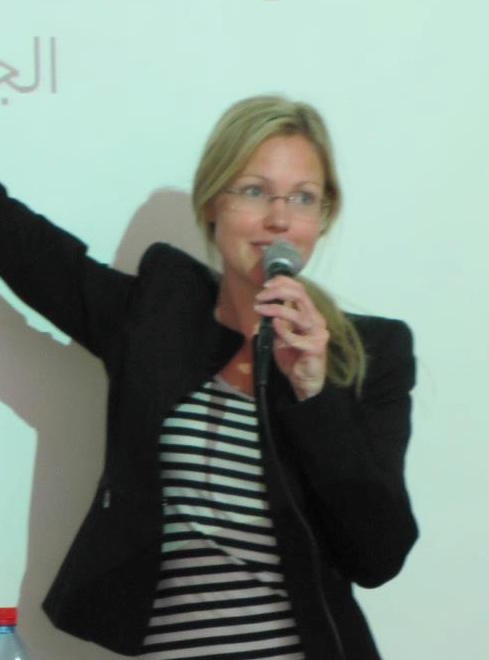
Miriam Lindgren Hjälm
Dr Miriam Lindgren Hjälm holds an MA in Semitic Studies from the University of Uppsala and obtained her PhD degree from the same university, in cooperation with Tel Aviv University. Her thesis focuses on early Christian Arabic versions of the Book of Daniel with special reference to their translation techniques. As a point of departure, she used the method developed by Professor Meira Polliack in her 1997 book with regard to Judaeo-Arabic translations, and the thesis offers a partial comparison between early Christian Arabic and Judaeo-Arabic (Sa’adya Gaon and Yefet ben Eli) techniques. The project was also supervised by Meira Polliack. Apart from translation techniques, Hjälm’s interests include the use of the Christian Old Testament in the Byzantine and Oriental liturgy, ecclesiastical languages, and the perception of holy scriptures in these communities. Within the Biblia Arabica project, she has reworked her doctoral thesis, which was published in 2016 by Brill under the title Christian Arabic Versions of Daniel. A Comparative Study of Early MSS and Translation Techniques in MSS Sinai Ar. 1 and 2. In addition, she edited a collection of articles entitled Senses of Scripture, Treasures of Tradition. The Bible in Arabic among Jews, Christians and Muslims, also for Brill’s Biblia Arabica series (2017). She also wrote several articles on the reception of other early Christian Arabic Old Testament books as well as on early liturgical Bible material in Arabic and the use thereof vis-à-vis texts in the traditional liturgical language(s) among Near-Eastern Christians.
For her publications, see https://ths.academia.edu/MiriamHjälm
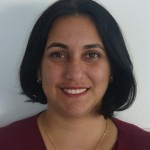
Meirav Nadler-Akirav
Dr Meirav Nadler-Akirav is Lecturer at the Department of Arabic, Bar-Ilan University, where she received her PhD (supervised by Professors Eliezer Schlossberg and David Doron, Bar-Ilan University, 2010), entitled The Arabic Commentary of Yefet ben Eli the Karaite on the Book of Amos: a scholarly edition of chapters 1 to 4, with a Hebrew translation, an introduction and interpretations. Her current research is devoted to Judeo-Arabic, focusing on language and on medieval Bible Bible exegesis. Within the Biblia Arabica project she prepared a critical edition of Yefet ben Eli’s commentary on the Books of Haggai and Malachi (forthcoming, Brill, Karaite Texts and Studies series). She has published various articles on the literary-historical approach of Yefet ben Eli in his commentary on the Book of Amos, and on his translation methodology in comparison to that of Sa‘adia Gaon, including “The Meaning of “The Great House” and “The Little House” in Medieval Jewish Exegesis (see Polliack and Brenner-Idan, Jewish Biblical Exegesis From Islamic Lands) and contributed two essays to The Textual History of the Bible (Brill): on Judeo-Arabic translations of the Early and Latter Prophets (with Meira Polliack) and on Judeo-Arabic translations of the books of Ezra, Nehemiah and Chronicles (with Meira Polliack and Yair Zoran).
For her publications, see https://biu.academia.edu/MeiravNadlerAkirav
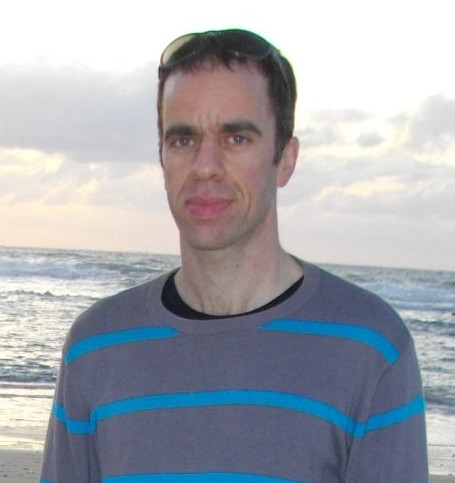
Arik Sadan
Dr Arik Sadan is a Senior Lecturer at Shalem College in Jerusalem. He holds a BA in Linguistics and Arabic Language and Literature (2001) and an MA (2004) and PhD (2010) in Arabic Language and Literature, all from the Hebrew University of Jerusalem. He wrote both his MA and PhD theses under the supervision of Professor Aryeh Levin, recipient of the Israel Prize for Linguistics (2010). Both theses deal with Arabic grammatical thought in general and the verbal system of Classical Arabic in particular. Having submitted his PhD thesis, Sadan travelled to Paris and Jena, (Université Paris 7 and Friedrich-Schiller-Universität respectively), where he spent two years of post-doctoral research. His post-doctoral research project focuses on editing and analyzing an ancient treatise in the field of Arabic grammar which deals not only with grammar and syntax but also with rhetoric and logic, based on eleven different manuscripts. In 2012 he published a critical edition of this work with Harrassowitz Verlag as well as a revised English version of his PhD thesis with Brill. Sadan’s fields of research are Arabic grammatical thought, Arab grammarians, Classical, Modern and Colloquial Arabic linguistics and manuscripts on Arabic grammar and other fields. In the framework of the Biblia Arabica project Sadan has prepared a critical edition on the Judeo-Arabic translation and commentary of the Karaite Yefet ben Eli on the book of Job based on several dozen manuscripts. Volume One, the edition, was published in 2020 by Brill as The Arabic Translation and Commentary of Yefet ben ‘Eli the Karaite on the Book of Job in the series Karaite Texts and Studies. The English translation will follow shortly. In addition, Sadan has dealt with various linguistic characteristics of Karaite manuscripts in Judeo-Arabic and with the comparison between these and manuscripts of other groups, for example Christian groups.
For his publications, see https://shalemcollege.academia.edu/ArikSadan
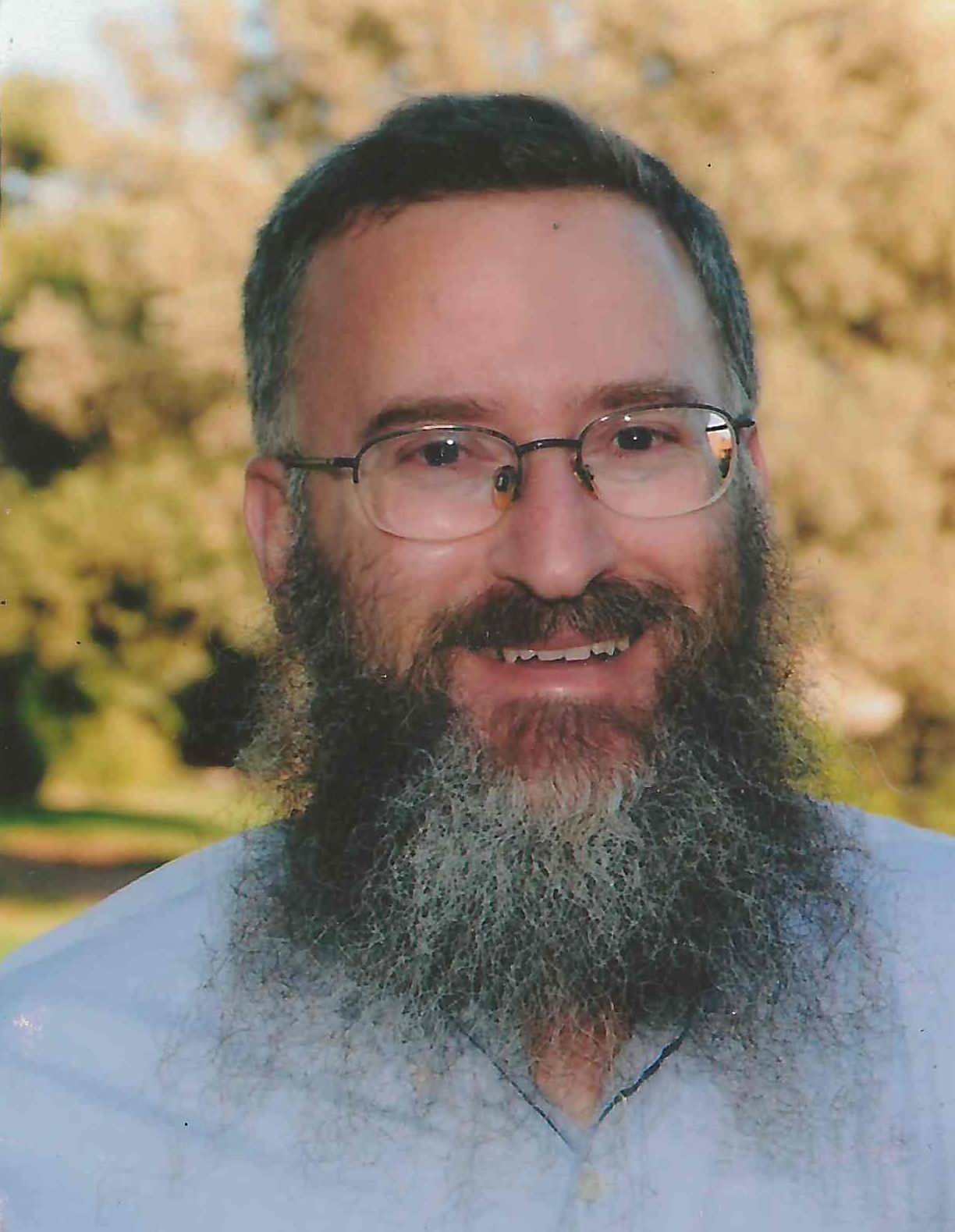
David Sklare
Dr David Sklare received his BA from Yale University (1976) in the Department of Religious Studies. His PhD is from Harvard University (1992), Department of Near Eastern Languages and Civilizations, in the program for post-Biblical Jewish History and Hebrew Literature. His doctoral dissertation topic was The Religious and Legal Thought of Samuel Ben Hofni Gaon: Texts and Studies in Cultural History. The dissertation includes the edition of two previously unknown works by Samuel Ben Hofni Gaon in Judeo-Arabic, dealing with topics in legal theory. Sklare’s research focuses on the culture (or cultures) of the Jews living in Arab lands in the Middle Ages and their literature in Judeo-Arabic. Among other topics, he has done work in the areas of legal literature and legal theory (both Rabbanite and Karaite), theology/philosophy, Jewish-Muslim polemics, Rabbanite-Karaite polemics, and biblical exegesis. Sklare directed the Center for the Study of Judeo-Arabic Culture and Literature of the Ben-Zvi Institute in Jerusalem. The Center’s projects have included cataloging manuscripts of the Firkovitch collections (held by the Russian National Library in St. Petersburg), most of the Judeo-Arabic fragments from the Genizah of the Ben-Ezra Synagogue in Cairo, as well as reconstructing, editing and translating Judeo-Arabic works in the areas of Jewish law and biblical exegesis. Within the framework of the Biblia Arabica project Sklare has worked on a catalog of the Firkovitch manuscripts containing biblical translations in Judeo-Arabic, and carried out an investigation of the literary genre of biblical questions. He is preparing an edition and translation of the surviving fragments of two anonymous works of this genre as well as working on other tenth century fragments related to Sa’adya Gaon.
For his publications, see https://huji.academia.edu/DavidSklare

Roy Vilozny
Dr Roy Vilozny, who is currently a lecturer at the Department of Arabic at the University of Haifa, holds a BA in Arabic Language and Literature and Islamic and Middle Eastern Studies from the Hebrew University of Jerusalem (2000). His MA thesis, which describes the way early Imamate sources depict the life cycle of the Shi’ite believer — from his inception and until the end of time — was written under the supervision of Professor Etan Kohlberg of the Hebrew University (2004). In his doctoral dissertation (2012), supervised by Professor Meir M. Bar-Asher of the Department of Arabic Language and Literature at the Hebrew University, Vilozny delineates some fundamental theological principles and religious concepts of the Imamī Shi’a in its formative period (9th-10th centuries CE). As a fellow in the Biblia Arabica project, Vilozny examined the way early Isma’ili authors approached the Bible. His main focus is on the unique interpretation of biblical prophetic stories and their significant role in shaping the Isma’ili cyclical history of the world and of humankind.
For his publications, see https://haifa.academia.edu/RoyVilozny

Yair Zoran
Mr Yair Zoran has a BA (Biblical Studies; Arabic language and literature) and an MA degree (Arabic language and literature) from the Hebrew University of Jerusalem. His MA thesis, supervised by Professor Miriam Goldstein, dealt with Yefet ben Eli’s translation and commentary on the book of Obadiah. His critical edition of this text appeared as an article in Ginzei Qedem. Within the Biblia Arabica project Zoran has been working on a critical edition of Yefet’s commentaries on the books of Ezra, Nehemiah and Chronicles. Being blind from early childhood, Yair Zoran is assisted by Mr Shammai Fishman, a colleague and Judeo-Arabist himself, who reads the manuscripts out loud to him. Upon hearing the texts, Zoran types them into a computer, which is connected to a Braille monitor and a Braille vocal program. These enable him to see the texts and to translate them into Hebrew. Of late, Zoran has published an article on “The Great Name and its Merits in Islam and their Parallels in Jewish Literature” (in Hebrew) in Bein Ever le-Arav vol. 9, edited by Professor Joseph Yuval Tobi.
-
Post-Doctoral Fellows
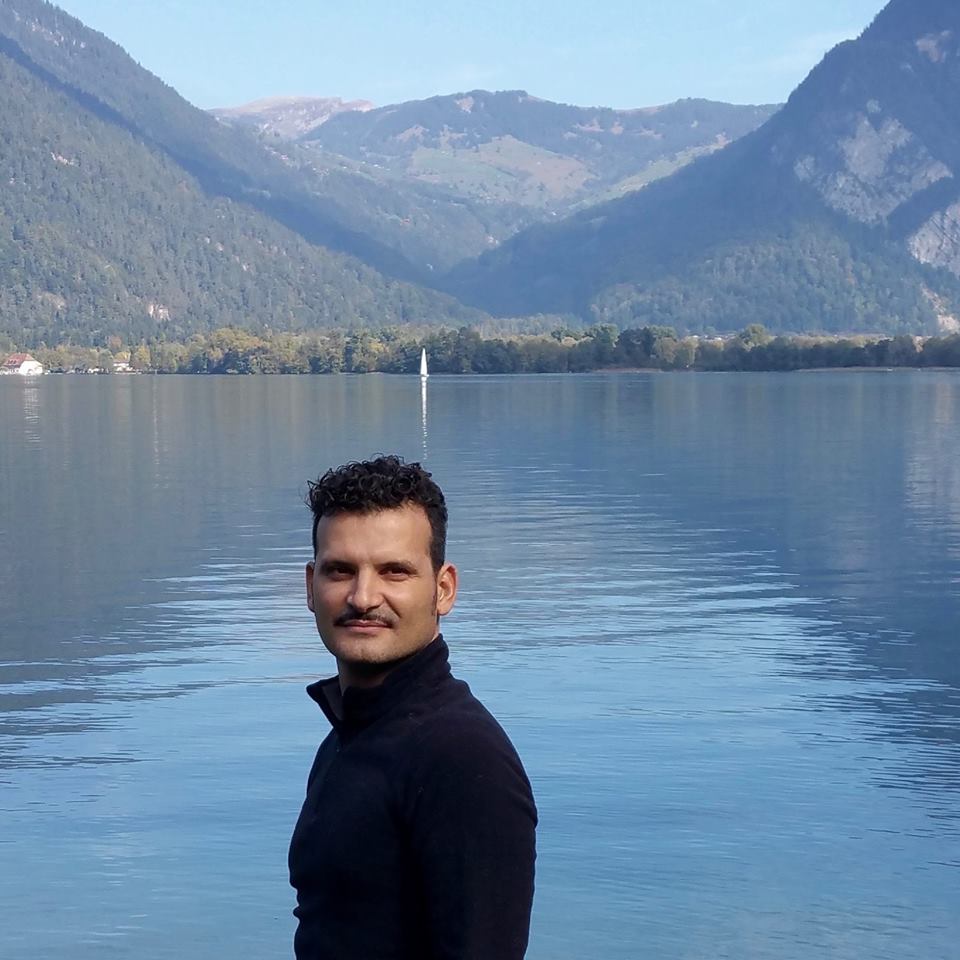
Meir Bar-Maymon
Dr Meir Bar-Maymon has a BA and an MA in Biblical Studies from Tel Aviv University (2009, 2011). His PhD dissertation , Mythologies of Masculinities and the Search of the [Male] Israelite Self in the Book of Ezekiel (2015) was written at Tel Aviv University and the Sciences Po Paris, under the joint supervision of Professor Athalya Brenner-Idan and Dr Michael Mach. He approaches the Hebrew Bible through the prism of cultural studies, political theology and post-structuralism, with an emphasis on the construction of the subject and the relations to his/her sovereign. Within the Biblia Arabica project, Bar-Maymon worked on Sa‘adia Gaon’s translation of the Book of Job, studying the links between Sa‘adia’s translation and his theology. Bar-Maymon’s main premise is that Jewish perception of self-subjectivity underwent a profound change as a response to Islamic challenges. He traces such changes in Sa‘adia’s translation of Job, comparing it with that of Yefet ben Eli, now available in an edition by Arik Sadan, and so examines different aspects of Jewish subjectivity that may be reflected in the two translations.
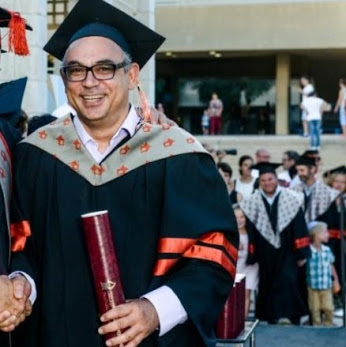
Nabih Bashir
Dr Nabih Bashir holds a BA in Sociology, Anthropology and Political Science (1994) and an MA in Political Science from the Hebrew University of Jerusalem (2005). He published several books in Arabic dealing with aspects of Israeli religio-political culture and the formation of the Arab society in Israel since the establishment of the state. His MA dissertation (Ben Gurion University of the Negev, supervised by Professor Daniel Lasker, 2012), was on The Synthetic Approach of Karaite Ya’qub Al-Qirqisani (~880 – ~950, Iraq) and his Biblical Exegesis: Genesis 18, 1-19 as a Case Study. In 2012 he published a new edition of Judah ha-Levi’s Kuzari in Arabic characters, with rich and elaborate footnotes. His PhD thesis (BGU, supervised by Professor Daniel Lasker, 2015), was on Angels in the Theology and Exegesis of Saadia Gaon: Human Being as the Purpose of Creation (2015). It elaborates Sa‘adia’s argumentation that human beings are the goal of the process of creation. Currently, Bashir serves as Research Fellow at the Triangle Regional Research and Development Center, Israel Ministry of Science and Technology, and as Adjunct Lecturer at the Center for Advanced Studies, Birzeit University, Palestine, where he teaches Jewish history and thought and Israel studies. Within the Biblia Arabica project, Bashir focused on preparing a new annotated edition of Sa‘adia Gaon’s Judaeo-Arabic commentary on Genesis. He has also published several articles, including “Qirqisānī’s Exegesis and Commentary on Genesis 18:1–22” (in Jewish Biblical Exegesis From Islamic Lands).
For his publications, see https://bgu.academia.edu/BashirNabih

Ora Brison
Dr Ora Brison holds a BA (Cum Laude) in Archaeology and Ancient Near East Cultures (2002), an MA (Summa Cum Laude) in Archaeology and Ancient Near East Cultures (2007), from Tel Aviv University. Her PhD dissertation, entitled Between Biblical Heroines and the Divine Sphere: Female Heroics as Intermediaries between the Human and the Divine in the Bible and Ancient Near East Literature (Tel Aviv University, 2015), was supervised by Professor Athalya Brenner-Idan. Her research focuses on literary and multidisciplinary analysis including cultural anthropology as well as literary feminist biblical criticism of female figures associated with the religious, magical and divinatory sphere in the Bible and Ancient Near East Cultures. Ora Brison has participated in a number of international research groups within the Society of Biblical Literature and lectured in various international conferences. Several of her articles appeared in the Texts & Contexts series and in A Feminist Companion to the Bible series, published by Bloomsbury T&T Clark. Within the Biblia Arabica Project Brison has focused on Yefet ben Eli’s commentaries and examined his exegetical and literary approach to various female biblical figures, she published several articles, including “Psalm 121 from Medieval Jewish Exegesis to Contemporary Israeli Culture: Some Reflections” (in Jewish Biblical Exegesis From Islamic Lands).
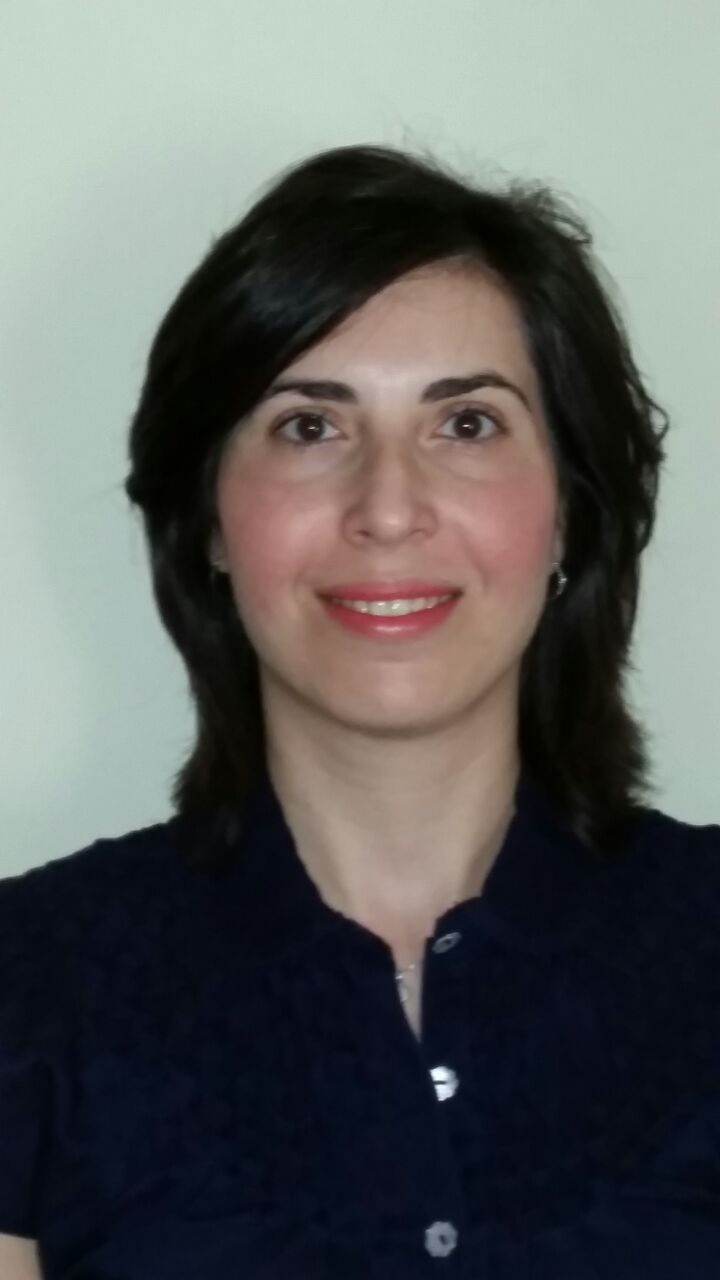
Rachel Hasson
Dr Rachel Hasson holds a BA (2001) in General Studies and Arabic Language and Linguistics, an MA (2006) in Arabic Language and Literature, all from the Hebrew University of Jerusalem. Her PhD dissertation (supervised by Professor Simon Hopkins, HU, 2016), was entitled New manuscripts written in late Judaeo-Arabic from the Firkovitch collection – Description, classification and sample texts. As a novel work on medieval Judeo-Arabic folk literature, it contained ten critical editions of unknown Judeo-Arabic folk stories and poems from the Firkovitch collection, followed by a Hebrew translation and relevant content-related introduction. Hasson was a Researcher at The Center for the Study of Judaeo-Arabic literature of the Ben-Zvi Institute in Jerusalem (2001–2013), where she focused on identifying, cataloging and researching Judeo-Arabic manuscripts from the Geniza. Within the Biblia Arabica project Hasson worked on comparative aspects of Ya’qub al-Qirqisani’s work on Genesis and its relationship to those of Sa’adia Gaon and Yefet. She also studied early Judeo-Arabic folk literature until the 15th century and its connections to late folk literature materials from the Cairo Geniza, and Islamic influences on popular Judeo-Arabic biblical stories therein, clarifying the intercultural relationships between Jews and Muslims in the Middle Ages in the context of shared narratives. Among her recent publications is “A Judeo-Arabic Manuscript by an Unnamed Author: A Story about King Solomon”(in Jewish Biblical Exegesis From Islamic Lands).
For her publications, see http://independent.academia.edu/RHassonKenat
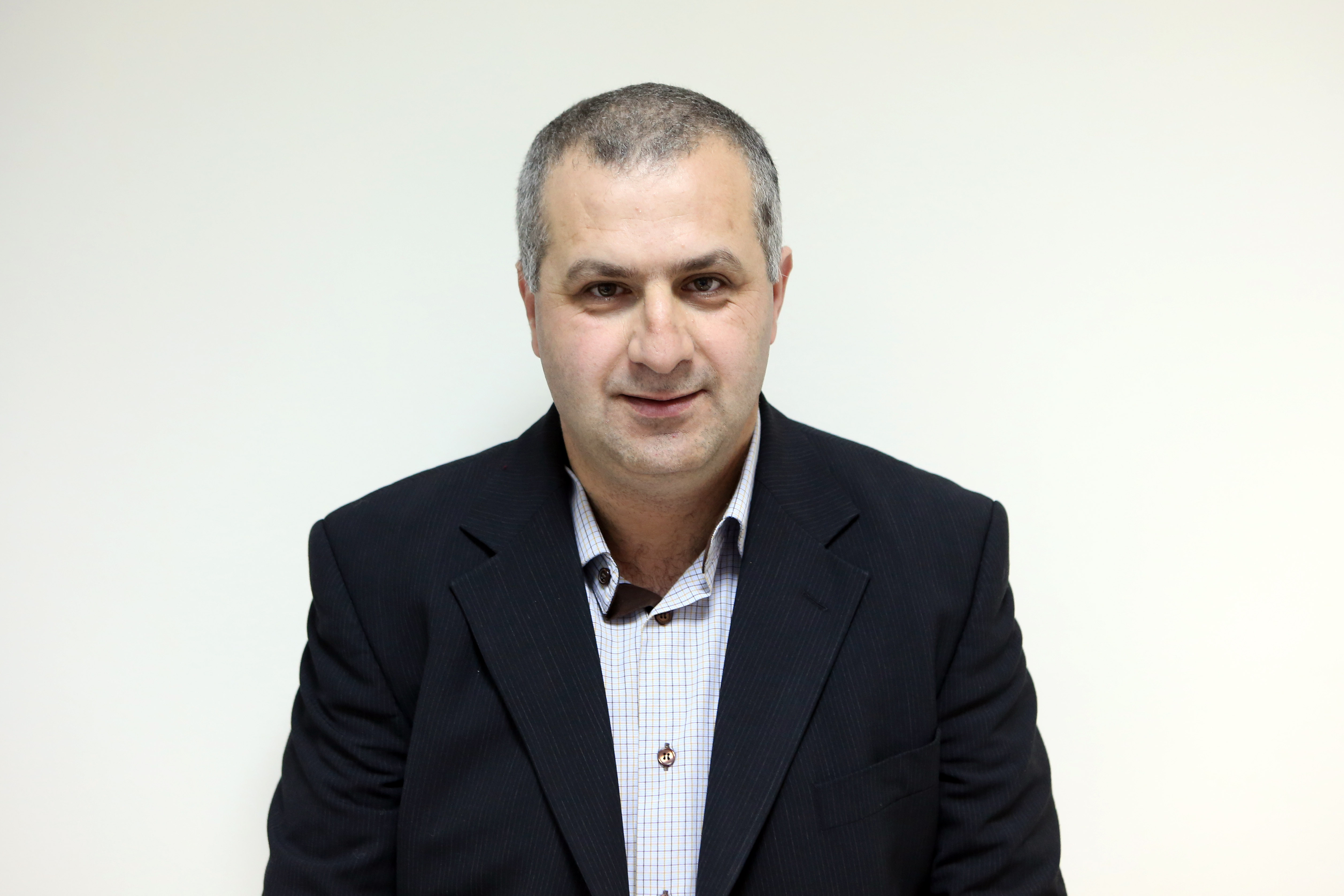
Zafer Tayseer Mohammad
Dr Zafer Tayseer Mohammad holds a BA in English Language and Literature from An-Najah National University in Nablus (1996), an MA in International Peace Studies from the University of Notre Dame, USA (2004), and an MA in Biblical studies from the Catholic Theological Union in Chicago (2006). He currently teaches ancient history at An-Najah National University in Nablus, Palestine. His doctoral dissertation (supervised by Professor Konrad Schmid, University of Zurich, 2016), entitled, The Dismal Depictions of Jerusalem and her Transformation in the Book of Isaiah, was on Zion theology in the book of Isaiah. Within the Biblia Arabica project, he researched the references to the city of Jerusalem in medieval and modern Arabic, Jewish, and Christian versions of the book of Isaiah, comparing them with the ancient versions (Targums, Septuagint, and Vulgate). Recent publications include: “Jeremiah: The Prophet and the Concept: A Response to Reinhard G. Kratz,” in Jeremiah’s Scriptures: Production, Reception, Interaction, and Transformation, ed. Hindy Najman and Konrad Schmid, JSJSup 173 (Leiden: Brill, 2016), 225–27); “Sa‘adia Gaon’s Translation of the References to Jerusalem in Isaiah 1–2: A Case Study in Lexical Choices” (in Jewish Biblical Exegesis From Islamic Lands).
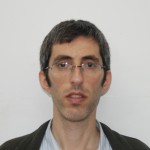
Doron Ya’acov
Dr Doron Ya’acov is Senior Lecturer in Hebrew language at the Hebrew University of Jerusalem and Herzog College. He served as scientific secretary at the Academy of the Hebrew Language in Jerusalem (2007–2015). He is currently involved in the Academy’s Historical Dictionary Project, and he is academic supervisor of the collection of Jewish community traditions, founded by Prof. Shlomo Morag. He researches the ancient reading traditions of the Bible and rabbinic literature and the Hebrew language of medieval literature, focusing on traditions of Yemenite Jews in Hebrew, Aramaic, and Arabic. Ya’acov graduated with a BA in the Bible and Hebrew Language from Herzog Teachers’ College (2001) and received an MA in Hebrew Language from the Hebrew University of Jerusalem (2005). His PhD dissertation (supervised by Professor Moshe Bar-Asher, Hebrew University of Jerusalem, 2012) was on The Hebrew Language of the Jews of Southern Yemen (the Sharʻab and ʻAdan [Aden] Communities): Phonetics and Morphology of the Noun in the Mishnah. Within the Biblia Arabica project, he researched a traditional Yemenite Jewish reading of Sa’adia Gaon’s translation of the Bible, including an analysis of the text’s grammar and special phenomena relating to the Yemenite oral tradition of Judeo-Arabic, which he intends to publish as an edition, see his article “The Yemenite Branch of Manuscripts of Rav Sa‘adia Gaon’s Tafsīr” (in Jewish Biblical Exegesis From Islamic Lands).
For his publications, see https://hebrew-academy.org.il/2016/01/27/%D7%93%D7%95%D7%A8%D7%95%D7%9F-%D7%99%D7%A2%D7%A7%D7%91/
-
Doctoral Fellows

Iqbal Abdel Raziq
Dr. Iqbal Abdel Raziq received her BA degree in English Literature and Arabic and Islamic Studies and her MA in Arabic and Islamic Studies (2012) from Tel Aviv University. Her MA thesis, written under the supervision of Professor Uri Rubin, dealt with Idolatry and Idols in the Quran and Early Muslim Tradition. Her PhD dissertation, supervised by Professors Camilla Adang and Meira Polliack, is entitled Divine revelation to the Israelite prophets according to early and classical Islamic sources (Tel Aviv University, 2020). In her thesis she examines how Muslim scholars perceived the process of revelation and the mediums in which God has brought his books and messages to the Israelite prophets, and their wider attitudes toward Jewish scriptures. She has presented aspects of her research at various international conferences and is currently revising her thesis for publication. Besides researching the Quran and the development of the early Islamic tradition in relation to it, Abdel Raziq is also interested in the interaction and relationship between the Abrahamic religions, mainly as they are reflected in early and classical Islamic sources.
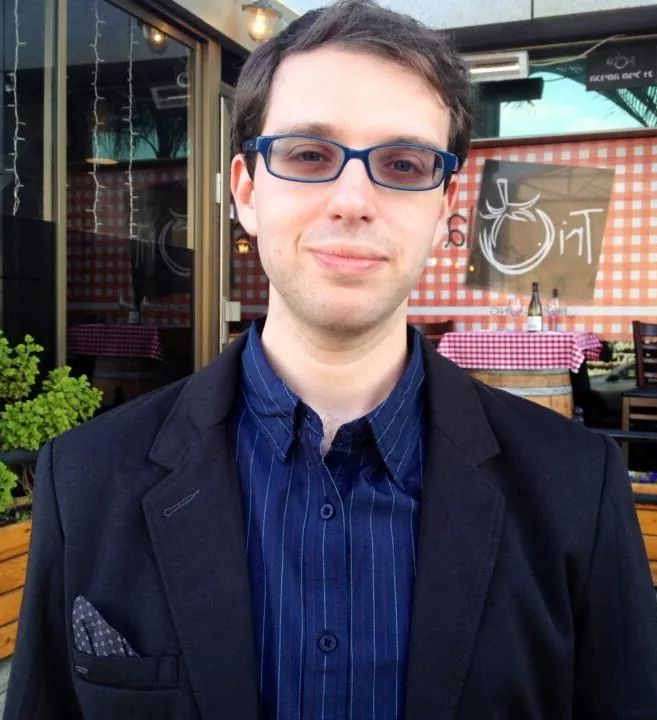
Sivan Nir
Dr Sivan Nir received a BA degree in Bible and Talmud and an MA in Bible (2013) from Tel Aviv University (summa cum laude). He wrote his Master’s thesis on the medieval reception of the Book of Ruth (advisor: Professor Meira Polliack). His PhD dissertation (supervised by Professors Meira Polliack and Ishay Rosen-Zwi) is entitled, The development of the literary character from late Midrash literature to medieval exegesis, as exemplified in the characters of Balaam, David, Jeremiah Ruth and Esther (Tel Aviv University, 2019). He is currently preparing his thesis for publication as a monograph. Nir’s scholarly interests include: medieval hermeneutics, Jewish Medieval Exegetes from the Islamic and Christian milieus and their connections, the influence of later midrashic collections on Medieval Jewish commentators. Nir has presented his work at several international conferences. He also taught a course on Medieval Bible exegesis at Tel Aviv University. He has recently published “A Prophet Warning Himself: Yefet Ben ‘Eli’s Dialogical Reading of Numbers 23–24” in Jewish Biblical Exegesis From Islamic Lands).
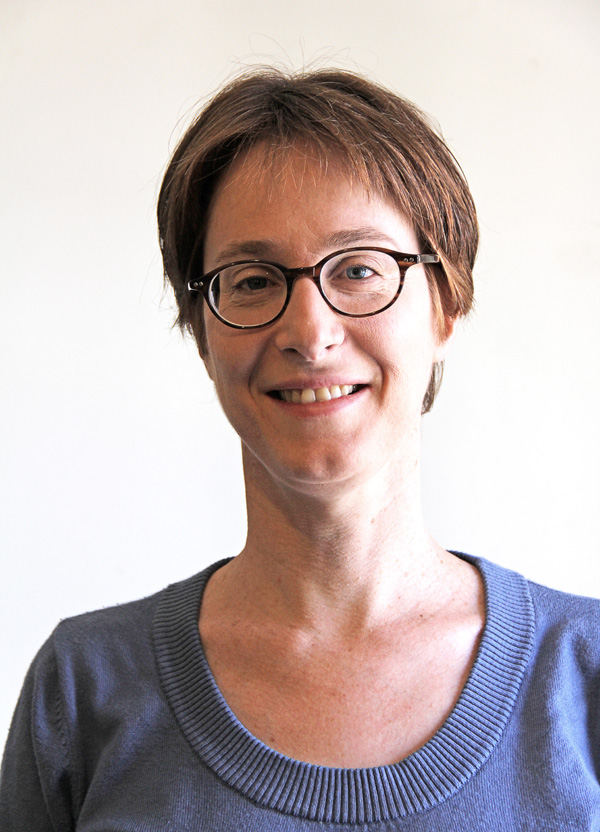
Yolanda Yavor
Yolanda Yavor received her BA and MA degrees in Arabic and Islamic Studies from Tel Aviv University (summa cum laude). She wrote her MA thesis (supervised by Camilla Adang) on the textual and philological analysis of Qiṣṣat al-dhabīḥ: the story of the intended sacrifice of Abraham’s son in the Qurʾān (Q 37: 100-113), in which she compared between the Qurʾānic version of the story and its biblical parallels and versions of Jewish origin. Yavor is in the final stages of her PhD studies, being supervised by Professors Camilla Adang and Meira Polliack, on the theme of the destruction of Jerusalem (and related issues) in the Qurʾān and early post-Qurʾānic Muslim tradition. Her general interests include the Qurʾān and early Muslim tradition, as well as the interactions between these corpora and the holy scriptures of Jews and Christians. She has presented her work at several international conferences and has been teaching courses on Islam at Tel Aviv University.
-
Affiliated Researchers
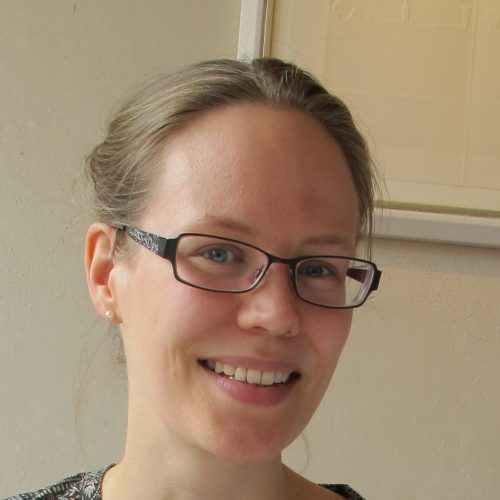
Aurélie Bischofberger
After a having completed a BA in Hebrew and Arabic at the University of Geneva in 2013 and a long-term stay in Jerusalem, Aurélie Bischofberger obtained an MA in Semitic Languages and Jewish Studies in Heidelberg in 2016. Between August 2016 and 2018, she worked as a research and teaching assistant for the chair of Old Testament and History of Ancient Israel at the Institut romand des sciences bibliques of the University of Lausanne. She is currently writing a PhD thesis on Arabic Versions of Leviticus 11: A Comprehensive Approach of Manuscript Evidence, Translation Techniques and Genetic Affiliations under the joint supervision of Meira Polliack (Tel Aviv) and Christophe Nihan (Lausanne). Her project “Clean and Unclean Animals in the Arabic Versions of the Bible: A Contribution to the Study of Christian Arabic Manuscripts of Leviticus” is funded by the Swiss National Fund since June 2019 (http://p3.snf.ch/Project-185373#). In November 2019 she was invited by the Institute of Semitic languages in Heidelberg as a visiting scholar and taught a course on the Arabic Bible during the Summer term 2020.

Geoff Martin
Dr Geoff Martin is currently a Visiting Assistant Professor of History at the College of Charleston, South Carolina. He is a specialist in the history of the so-called Mozarabs: the Arabic-speaking Christians of medieval Iberia. His 2016 PhD thesis, written under the supervision of Professor Thomas Burman at University of Tennessee Knoxville, is entitled Mozarab Readers of the Bible, from the Cordoban Martyrs to the Glossa Ordinaria. He is in the process of reworking the thesis into a monograph, under the provisional title “The Mozarabs’ Bibles”. His project offers a thorough look at the Mozarabic translators who rendered the Psalms from Latin into Arabic, as well as the Mozarabic scribes/annotators who wrote hundreds of Arabic notes in Latin biblical manuscripts. Broadly speaking, he demonstrates that the Mozarabs employed Qurʿānic phrasing in their Arabic translations, but also that they drew upon Latin culture to a greater degree than many scholars have realized. Martin argues that the Mozarabic translators and annotators whom he studies get as close to the literal meaning of Mozarab—one who acts like an Arab—as we are going to get. He has won grants and fellowships from The Medieval Academy of America, The Warburg Institute at the University of London, and the University of Tennessee Humanities Center, among others.
On Geoff Martin, see https://marco.utk.edu/people/geoff-martin/
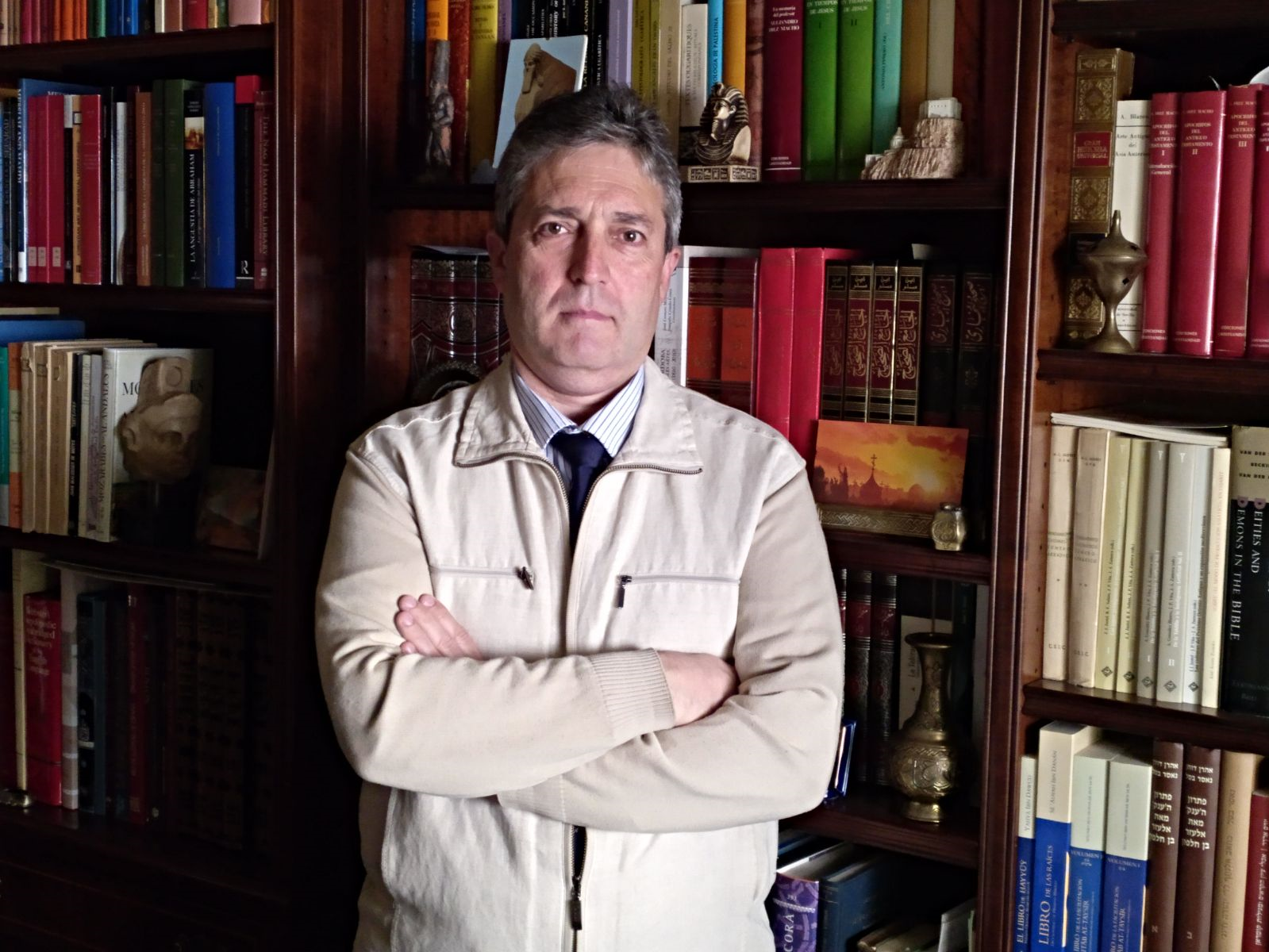
Juan Pedro Monferrer-Sala
Juan Pedro Monferrer-Sala is Professor of Arabic and Islamic Studies at the University of Cordoba, Spain, where he teaches Arabic language and literature and Islamic history. He has an MA (1995) and a PhD (1996) from the University of Granada, where he also teaches MA courses as invited professor in the Department of Semitic Studies. His research focuses on Christian Arabic literature in the Near East and al-Andalus, Besides Arabic, he deals with sources in Latin, Greek, Hebrew, Aramaic, Syriac and Coptic. He is the founding co-editor, with Professor Samir Khalil Samir, of Collectanea Christiana Orientalia, editor-in-chief of the journal Al-Qanṭara and one of the editors of the Brill series Biblia Arabica. He has co-edited a number of volumes in Brill’s series Islam and Christian-Muslim Relations. A Bibliographical History. Together with Sofía Torallas (Chicago), he directs the publication series Oriens Academic, published by Cordoba University Press (see https://www.uco.es/ucopress/index.php/en/welcome/series-and-chief-editors/semitic-studies). His edition of the Hexateuch from the Syro-Hexapla is forthcoming with Gorgias Press.
For his publications, see https://uco-es.academia.edu/JuanPedroMonferrerSala
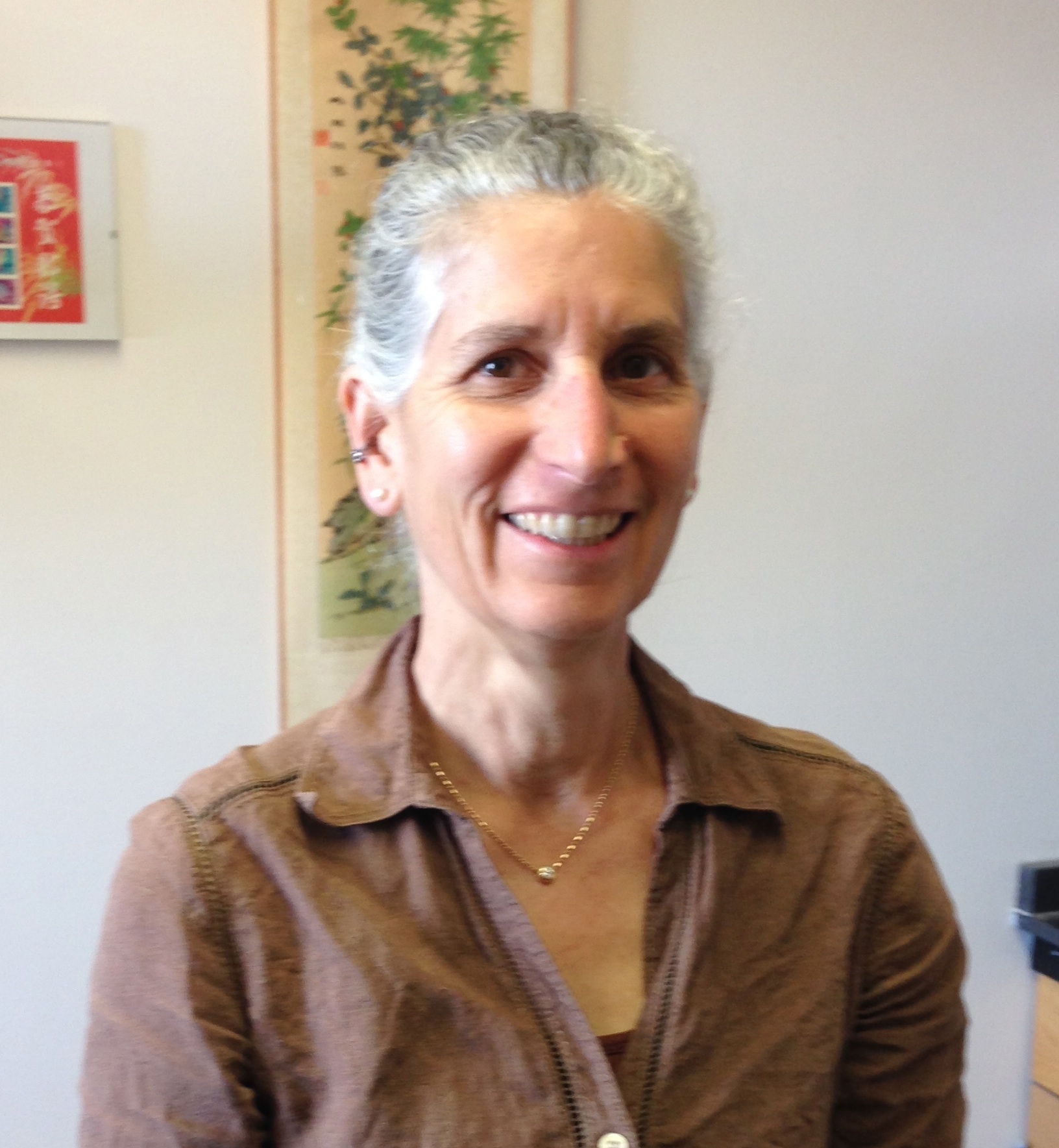
Ilana Sasson (Z”L)
Dr. Ilana Sasson (1954-2017) received her BSc in Biology (1977) and MSc in Genetics (1980) from the Hebrew University in Jerusalem. As of 1998 She studied Biblical and Ancient Near Eastern Literature at Columbia University and received her MPhil (2007) and PhD (2010) in Bible and Ancient Semitic languages from the Jewish Theological Seminary, New York. She was a postdoctoral fellow at Tel Aviv University, Department of Biblical Studies (2012–2014), and affiliated with the Biblia Arabica research group until 2017. Sasson taught courses on comparative religions, Hebrew Bible, and women in the Bible at Sacred Heart University in Fairfield, CT, and a Judeo-Arabic course at the Jewish Theological Seminary. Her doctoral dissertation (supervised by Professors Alan Cooper, Raymond Scheidlin, and Daniel Frank, JTS, 2010), on Yefet ben ‘Eli’s commentary on the Book of Proverbs was expanded into an annotated critical edition with a detailed introduction in her book The Arabic Translation and Commentary of Yefet b. ‘Eli on the Book of Proverbs. Volume 1: Edition and Introduction (Leiden: Brill, 2016). A second volume, containing her English translation of this major work, substantial parts of which she left in manuscript, is expected to appear with the aid of Professor Michael G. Wechsler in the Karaite Texts and Studies series (Brill). She published major articles on gender equality, masorah, and other topics related to medieval Karaite exegesis.
For her publications, see https://sacredheart.academia.edu/ilanaSasson

Peter Tarras
Peter Tarras is a research assistant in the DFG-funded project “Arabic and Latin Glossary” based at the University of Würzburg. He is currently completing his PhD thesis, supervised by Prof. Peter Adamson, LMU Munich, under the title “Dysdaimonia: Evil, Free Will, and Eschatology in al-Fārābī”. Peter teaches courses on different aspects of medieval Middle Eastern Judaism at the Institute of Near and Middle Eastern Studies, LMU Munich. As an associated member of Biblia Arabica, he has worked on biblical quotations in Christian Arabic apologetical literature and developed a strong interest in manuscript studies and the history of modern manuscript collections.
For his publications, see http://koenig-ludwig-haus.academia.edu/PeterTarras

Rob Turnbull
Robert Turnbull completed a BSc (Mathematics and Astrophysics) at Monash University in Australia from 2001 to 2003. He then worked for Monash Cluster Computing where he was part of a team developing software for computational modelling in geodynamics. From 2010 to 2016, Turnbull completed an MDiv at Ridley College in Melbourne (part of the Australian College of Theology). During this time, he also spent several years working in Jordan where he worked for a centre for deaf adults. There, he learned Arabic and found a love of Arabic manuscripts. He is completing his PhD studies at Ridley College under the supervision of Professors Alexander Treiger and Michael Bird on a version of the Gospels in Arabic found in manuscripts of the Sinai New Finds. He currently works as a Research Data Specialist at the Melbourne Data Analytics Platform at the University of Melbourne. Robert Turnbull has developed of a number of mobile apps for language learning, including one for learning Hebrew and Greek vocabulary from biblical texts and he is working to release apps for learning Arabic vocab from the Qurʾān, Syriac vocab from the Peshitta and, in partnership with Beth Mardutho, an app version of a textbook for Surayt (a new-Aramaic language). His interests include codicology, liturgical development, the Arabic lectionary tradition and New Testament textual criticism. He seeks to use mathematical modelling to assist in the study of textual traditions and is working to develop open-source software for manuscript analysis.
On his scholarly activities, see https://robertturnbull.academia.edu/
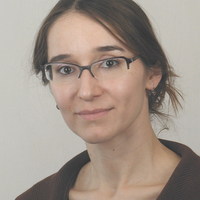
Marzena Zawanowska
Dr. Marzena Zawanowska graduated from the Departments of Hebrew and Arabic Studies at the University of Warsaw (2001). She is currently an Assistant Professor at the Faculty of History, University of Warsaw, and Curator of Manuscripts in the Emanuel Ringelblum Jewish Historical Institute of Warsaw. Her PhD dissertation (University of Warsaw in cooperation with Tel Aviv University, 2008) was devoted to Yefet ben Eli’s commentary on the Abraham cycle in Genesis and was significantly expanded in her book The Arabic Translation and Commentary of Yefet ben ʿEli the Karaite on the Abraham Narratives (Genesis 11:10–25:18) (Leiden: Brill, 2012). Apart from Bible exegesis, her research interests include Hebrew literature and Jewish philosophy. She was also head of a major project publishing all of Chayyim Nachman Bialik’s Hebrew and Yiddish poetry in bilingual–Polish-Hebrew and Polish-Yiddish–editions (2012). She has published many articles which explore the complex biblical exegesis and wider historical and philosophical thinking of the medieval Karaite exegetes, who wrote their works in Judeo-Arabic, during the tenth and eleventh centuries, in Jerusalem. Among her recent articles are: “The Bible Read through the Prism of Theology: The Rendering of Explicit Anthropomorphisms in the Medieval Karaite Tradition of Arabic Bible Translation,” JJTP 24 (2016): 1–66; and “‘Where the Plain Meaning Is Obscure or Unacceptable …’: The Treatment of Implicit Anthropomorphisms in the Medieval Karaite Tradition of Arabic Bible Translation,” EJJS 10 (2016): 1–49; Yefet ben ‘Eli on Genesis 11 and 22 (in Jewish Biblical Exegesis From Islamic Lands).
For her publications, see https://uw.academia.edu/MarzenaZawanowska

